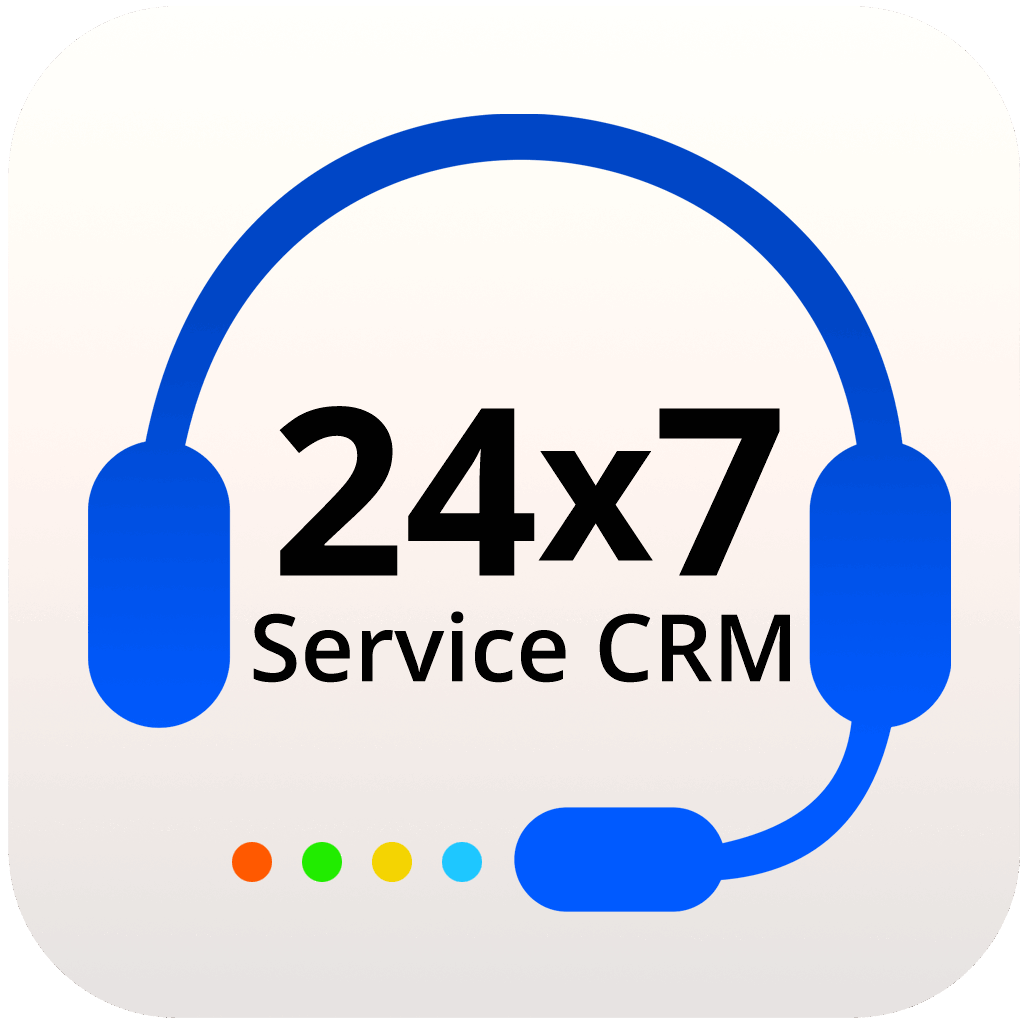Yes, most modern operations management software is intended to be available from numerous devices and platforms. This means you may simply access the software from your desktop, laptop, tablet, or smartphone. Furthermore, these applications are compatible with a variety of operating systems, including Windows, Mac, iOS, and Android. This provides consumers with convenience and flexibility, allowing them to oversee their operations from any place or device.
List of 20 Best Operations Management Software
Forest Admin is a robust database management solution designed to streamline your business operations. Its standalone interface eliminates the need for designing, development, and maintenance, allowing you to save time and focus on delivering a super...Read More Forest Admin
SkuBrain is a cloud-based solution for managing operations. With advanced capabilities for demand forecasting and inventory optimization, SkuBrain is the ideal tool for sales professionals. Take the guesswork out of stock levels, simplify purchasing...Read More SkuBrain
Service CRM 24x7 solution for streamlining the demands of the service industry. Our flexible application allows businesses to easily track updates and stay connected, no matter where or when they are. Say farewell to complex procedures and welcome a...Read More Service CRM 24x7
Megaventory Inventory - a leading online management system tailored for Indian businesses. Featuring a user-friendly interface, it effortlessly generates comprehensive inventory reports. The cloud-based platform caters to multiple locations and users...Read More Megaventory Inventory
Classpro is a online teaching solution for coaching institutes. Seamlessly create and monetize courses, collect payments, conduct live lectures, assign tasks, and conduct mock tests, all within your own branded app. Trusted by over 1000 coaching clas...Read More Classpro
Skubana is a operations platform catered towards high volume sellers. It offers automated solutions and efficient organization for businesses selling on various channels, minimizing errors and simplifying processes. By consolidating multiple solution...Read More Skubana
Contaque Auto Dialer Software solution for optimizing your call centers performance and profitability. This software empowers your agents to make lightning-fast calls, resulting in improved productivity and increased sales. No more tedious manual dia...Read More Contaque Auto Dialer Software
Latitude ERP, a top-of-the-line business solution by Apero. Our software is designed to effectively manage all areas of your company and boost productivity. From finances and customer interactions to supply chain operations, Latitude ERP automates es...Read More Latitude ERP
TeleView the Self Service BI solution designed to cater specifically to the telecom industry. With cutting-edge features such as easy query creation, seamless dashboard and report generation, and mobile compatibility, TeleView sets a new standard in...Read More TeleView
LogiNext On-Demand – solution to revolutionize your companys logistics and on-demand delivery services. By automating and optimizing the process, this software guarantees prompt and proficient express deliveries. Say farewell to setbacks and w...Read More LogiNext On-Demand
AuditFlo, a dynamic software solution designed to streamline traditional paper-based processes with customizable checklists. Our convenient mobile app allows field employees to conduct audits on-the-go while all data is efficiently managed in one cen...Read More Auditflo
Unified IP by Aspect solution for modern contact centers. This powerful software transforms traditional call centers with its comprehensive customer contact capabilities, providing a seamless and unified platform. Elevate your customer experience wit...Read More Aspect Unified IP
forBinary is the go-to platform for creating top-notch, multilingual mobile apps for your business, without any coding knowledge. Our platform is designed to meet the requirements of small and medium enterprises in India, providing cost-effective and...Read More forBinary - Operations Management
LOOP by Wootz.Tech - an innovative cloud-based solution that revolutionizes business productivity with its real-time optimization and automation capabilities. This powerful software offers on-demand lml, hyperlocal operations, and efficient field-for...Read More LOOP by Wootz.Tech
TRADOGRAM is a procurement management solution that empowers you to take charge of your purchases from anywhere. Utilizing a robust cloud-based system, TRADOGRAM allows for seamless tracking and retrieval of procurement data, as well as flexible mana...Read More TRADOGRAM
ngDesk is a help desk software that surpasses paid options in terms of features and functionality. With ngDesk, streamline your customer support process with incident alerts and customizable ticket resolutions. No more worrying about usage limits - n...Read More ngDesk
Cleeksy is a operational management solution designed to enhance team collaboration, streamline processes, and increase productivity. Our powerful platform integrates your team, breaks down barriers, standardizes procedures, and promotes cooperation...Read More Cleeksy
Robo-commodity is a IT consulting firm with a Microsoft Gold certification. Our extensive expertise lies in delivering exceptional business solutions through the utilization of Microsoft Dynamics ERP, CRM, Business Intelligence, and Office 365. With...Read More Robo-commodity
Seamless Customer Service is a solution to optimize your business operations. By consolidating rules, best practices, and administration, our integrated platform simplifies managing self-service and assisted service for prompt resolution of customer...Read More Seamless Customer Service
Aspect Productive Workforce – solution for your companys resource management needs. Our innovative software ignites a culture of continuous improvement, providing your workforce with the tools to achieve exceptional productivity. By engaging a...Read More Aspect Productive Workforce
Learn More About Operations Management Software
- What Is Operations Management Software?
- What Are The Recent Trends In Operations Management Software?
- Benefits Of Using Operations Management Software
- Important Factors To Consider While Purchasing Operations Management Software?
- What Are The Key Features To Look For In Operations Management Software?
- Why Do Businesses Need Operations Management Software?
- How Much Time Is Required To Implement Operations Management Software?
- What Is The Level Of Customization Available In Operations Management Software?
- Which Industries Can Benefit The Most From Operations Management Software?
- Conclusion
What Is Operations Management Software?
Operations management software (OMS) is a complete application that helps businesses streamline and optimize their operational procedures. This software solution automates and organizes daily chores, enabling firms to manage operations more efficiently, increase productivity, and save expenses. OMS is made up of multiple interconnected modules that address essential aspects of operational management, such as production planning, inventory management, supply chain management, and scheduling.
These modules integrate effortlessly, giving organizations a comprehensive perspective of their operations and allowing them to make informed decisions to increase productivity. One of the primary benefits of an OMS is the ability to concentrate all operational data, such as inventory levels, sales orders, and supplier information, in one location.
This enables real-time tracking and monitoring of processes, resulting in significant insights into corporate performance. Another significant advantage of OMS is its capacity to automate repetitive processes like inventory replenishment, purchase orders, and production scheduling. This not only saves time, but also lowers the danger of human error, guaranteeing that corporate operations are accurate.
Furthermore, OMS provides powerful reporting and analytics features that help firms identify areas for development, track key performance indicators, and make data-driven choices. These insights can help businesses improve their processes, eliminate waste, and increase profitability. When looking for an OMS solution, consider the software's scalability and flexibility. A strong OMS should be able to adapt to a business's shifting needs while also supporting long-term growth.
What Are The Recent Trends In Operations Management Software?
Operations management software has become an indispensable tool for firms seeking to streamline and optimize their operations. As technology advances, so are the trends in operations management software.
In this buyer's guide, we'll look at the latest trends in operations management software and how they can help your organization.
1. Cloud-Based Solutions: One of the most important trends in operations management software is the use of cloud-based solutions. Businesses that use cloud-based software can access their operational data from any location, at any time, and on any device. This has dramatically improved team productivity and communication, particularly in firms with various locations or remote staff.
2. Mobile Capabilities: With the proliferation of mobile devices, operations management software now includes mobile capabilities. This enables users to access critical data and complete work on the road, enhancing productivity and flexibility. Mobile capabilities also offer real-time updates and notifications, keeping consumers informed and enabling swift decision-making.
3. Artificial Intelligence (AI): AI has had a tremendous impact on operations management software, automating manual and repetitive processes while increasing accuracy and efficiency. AI-enabled software can analyze data to detect patterns, estimate demand, and make informed decisions. This tendency will continue to accelerate and transform the operations management process.
4. Integration With Other Systems: Another significant development is the integration of operations management software with other systems like ERP, CRM, and supply chain management software. This integration improves processes and provides a more comprehensive perspective of business activities. It also minimizes data duplication, resulting in more accurate and effective operations management.
5. Predictive Analytics: Predictive analytics is a significant trend in operations management software that leverages past data and artificial intelligence to forecast future results. This enables firms to predict possible challenges and take proactive steps to avert them. Predictive analytics can also aid with inventory management, waste reduction, and cost savings.
6. Real-Time Visibility: Real-time data and visibility are essential for effective operations management. With the latest technological breakthroughs, operations management software may now provide real-time insights into inventory levels, supply chain, and manufacturing processes. This enables organizations to make sound judgments and respond promptly to changes in demand or unexpected challenges.
Benefits Of Using Operations Management Software
As a business owner or manager, keeping track of your operations is critical to your company's success and growth. However, managing all of the duties and processes can be overwhelming and time-consuming. Here's where operations management software comes in. Operations management software is a strong tool that allows firms to optimize and automate their processes, saving time, money, and increasing overall efficiency.
Here are the main advantages of adopting operations management software:
1. Centralized Data Management: One of the primary advantages of employing operations management software is the ability to store and manage all data in a single spot. This allows your team to easily access and update information, reducing the need for several spreadsheets and laborious data entry.
2. Real-Time Visibility: Operations management software provides real-time visibility into all parts of your business operations. This means you can track and monitor your operations, inventory levels, and performance in real time, providing the information you need to make sound decisions.
3. Automated Processes: Manual processes are time-consuming and prone to human mistake. Operations management software automates these operations, assuring accuracy and freeing up your team's time for other vital activities.
4. Cost Savings: By streamlining and automating your procedures, you may cut labor expenses and lessen the possibility of errors. Furthermore, the software's real-time data helps you to detect inefficiencies and make required modifications, saving your company money in the long run.
5. Increased Efficiency: By providing access to correct and up-to-date data, operations management software allows firms to make faster and more educated decisions. This leads to increased efficiency and productivity, helping you to meet client needs while staying ahead of the competition.
6. Scalability: As your firm expands, so will your operations. Operations management software is designed to be scalable, which means it can adapt to your company's changing needs and demands without causing significant disruptions.
Important Factors To Consider While Purchasing Operations Management Software?
Operations Management Software (OMS) has emerged as a critical tool for firms of all sizes seeking to optimize operations, improve efficiency, and boost profitability. With so many alternatives on the market, it might be difficult to choose the best OMS for your organization.
We will go over the key elements to consider when selecting operations management software.
1. Identify Your Business Needs: Before beginning your search for an OMS, you must first understand your company's requirements and issues. This will allow you to restrict your options and select an OMS that is tailored to your exact requirements. Inventory management, supply chain efficiency, and automation are some popular qualities to look for.
2. Scalability: As your firm expands, so will your operations. It is critical to select a scalable OMS that can meet your future business requirements. You do not want to invest in a system that will become ineffective in a few years, resulting in additional costs.
3. User-Friendly Interface: An OMS is only useful if it is simple and easy to use. It should have a basic and easy UI that your team can rapidly adjust to. A complex system may necessitate significant training and lead to decreased output.
4. Integration With Existing Systems: Consider how well the software integrates with your existing systems, such as accounting software, eCommerce platforms, or CRM. This enables a smooth flow of data while reducing the possibility of errors.
5. Mobile Compatibility: In today's fast-paced corporate world, having access to real-time data is essential. Choose an OMS that includes a mobile app for your devices, allowing you to make decisions on the go.
6. Cost: The price of an OMS varies according to its features and the size of your company. Look for software that has a high return on investment and can justify its price. Consider any additional fees for setup, maintenance, and upgrades.
7. Customer Support: An effective support system is critical, particularly throughout the implementation and early stages of utilizing the OMS. Look for a software vendor that provides 24-hour customer assistance and has an excellent track record of responding quickly and resolving issues.
8. Security: With important company data saved in the system, it is critical that the software has strong security mechanisms in place. To protect your business information, look for features like data encryption, user access control, and scheduled backups.
9. Reviews & References: Before making your final decision, examine the software provider's reputation and read client reviews. You can also get references from the vendor to gain a better idea of the software's performance.
What Are The Key Features To Look For In Operations Management Software?
When looking for operations management software, there are numerous critical characteristics to examine to guarantee that you are choosing the best option for your company's requirements.
These features include the following:
1. Inventory Management: Effective inventory management is critical for every firm, and operations management software should be capable of effectively tracking and managing inventory levels. This provides capabilities like real-time tracking, automated refilling, and anticipating inventory requirements.
2. Production Scheduling: The software should be able to generate and manage production schedules, allowing you to plan and optimize your processes for maximum efficiency. It should also provide the ability to track progress and make changes as needed.
3. Quality Control: Quality control is critical in any sector, and operations management software should contain tools to verify that products and processes adhere to established standards. This could include quality control inspections, reporting, and compliance tracking.
4. Supply Chain Management: An efficient operations management software should contain functionality for managing your supply chain, from material procurement to final product delivery. This could include supplier management, procurement, and logistics tracking.
5. Data Analytics: A solid operations management software should include powerful data analytics features that allow you to acquire insights into company operations and make data-driven choices. This could include real-time data, configurable dashboards, and predictive analytics.
6. Collaboration And Communication: The software should enable seamless communication and collaboration between the many departments and teams participating in the operations process. This enables better coordination and problem-solving, resulting in increased efficiency and productivity.
7. Scalability: As your firm expands, so will your operational management requirements. It is critical to select software that can scale with your company and adapt to changing needs without causing disruptions or adding expenditures.
8. User-Friendly Interface: The software should have an intuitive and user-friendly interface so that all team members may easily adopt and use it. This allows your business to reap the full benefits of the program without the requirement for extensive training or technical skills.
9. Integration Capabilities: The best operations management software should be able to interact with other critical business systems including CRM, ERP, and accounting software. This results in a more streamlined and integrated workflow, removing data duplication and increasing overall efficiency.
10. Customer Help: It is prudent to select a software provider that provides dependable and responsive customer help in the event of a technical problem or concern. This can save you time and money in the long term by providing continuous operations and a seamless software experience.
Why Do Businesses Need Operations Management Software?
Operations management is a critical component of running any firm, regardless of size or industry. It is concerned with the effective organization and coordination of resources, operations, and processes in order to obtain maximum results and meet business objectives. However, with so many moving parts and intricate responsibilities, running operations can be difficult and time-consuming.
This is where operations management software comes in handy. This program is intended to streamline and automate numerous operations management processes, increasing their efficiency and effectiveness. It provides enterprises with a unified platform for overseeing and managing all of their operations, including inventory management, production planning, and supply chain optimization.
One of the key motivations for firms to use operations management software is to increase overall efficiency and productivity. This program automates manual procedures and tracks operations in real time, helping to eliminate time-consuming and error-prone processes. This allows teams to focus on more vital activities, resulting in increased productivity and faster project completion.
Furthermore, operations management software provides significant insights and statistics, enabling companies to make data-driven decisions. It assists firms in identifying bottlenecks and inefficiencies in their operations, allowing them to optimize procedures and increase overall performance. This equates to cost savings, enhanced customer pleasure, and higher profitability.
Another important advantage of operations management software is its capacity to improve communication and collaboration between teams. It offers a centralized platform for data sharing, task assignment, and real-time updates, hence increasing transparency and cooperation. This ultimately leads to improved teamwork and more efficient operations.
Furthermore, given the rising complexity of commercial operations, a manual method is no longer viable. Operations management software provides a scalable solution that can be tailored to the changing needs of a developing firm. It enables businesses to manage a growing volume of operations while maintaining quality and efficiency.
How Much Time Is Required To Implement Operations Management Software?
The time required to establish operations management software varies substantially based on the program and your company's individual demands and complications. Implementing an operations management software solution can take anywhere from a few weeks to many months. The first step in the implementation process is typically a consultation with the software provider to assess your company requirements and select the optimal implementation strategy.
This may include identifying critical processes and workflows, creating user accounts, and configuring the software to match your individual needs. The following phase is often data migration, which involves transferring old data to the new software system. This might be a time-consuming procedure, especially if you're switching from several legacy systems. To ensure accuracy and reduce potential difficulties, data must be thoroughly reviewed and cleaned up before to migration.
Following data migration, training and testing are conducted to ensure that your workforce is comfortable and proficient with the new program. This process can take several weeks, depending on your organization's size and complexity, as well as the learning curve of the program. Finally, the program is ready for deployment, and your team can begin utilizing it to streamline operations and increase efficiency. To reap the most benefits from the program, it is critical to have a complete understanding of its features and capabilities; thus, continuing training and assistance may be required.
What Is The Level Of Customization Available In Operations Management Software?
Operations management software can help firms streamline and optimize their operational procedures. Operations management software, with capabilities like automation, data analysis, and job management, has the potential to significantly boost efficiency and production. However, while selecting operations management software, firms must examine the level of customisation available. In today's competitive market, each organization has distinct processes and needs that may necessitate a software solution that is adapted to their specific needs. So, what level of customisation is accessible in operations management software? The answer to this question will vary depending on the software you use. Some operations management software provides a one-size-fits-all solution with few customization choices, whereas others give a great deal of flexibility and customization.
When considering the level of customisation possible in operations management software, examine the following major areas:
1. Workflow Customization: The capacity to modify workflow and procedures to meet your company's demands is critical in operations management. Some software allows you to construct configurable processes that include specific phases and rules for each operation. This means that the software may adapt to your own business operations rather than requiring your staff to follow a predetermined methodology.
2. Integration Capabilities: Another factor to evaluate is the level of integration that the software provides. A highly adaptable operations management software should be able to interact smoothly with your company's other tools and systems, such as CRM, ERP, and accounting software. This allows you to develop a seamless and efficient workflow across departments and systems.
3. Data And Reporting Customization: Data analysis and reporting are critical components of operations management, and the software you choose should be able to meet your company's specific reporting requirements. Can you generate bespoke reports based on the information you want to track? Can you personalize dashboards and data visualizations? These are some of the questions to examine while determining the extent of data customisation offered.
4. User Permissions And Access Control: Different teams and individuals in your business may require varying levels of access to the software. A fully customizable operations management software should include user permission settings that let you restrict who may see, change, and access specific features and data. This functionality ensures that your team members have access to the necessary information while protecting sensitive data.
5. Branding And Interface Customization: A customizable operations management software should also allow you to personalize the user interface to reflect your brand's image. This includes the ability to modify the color scheme, add your company's logo and branding elements, and tailor the interface layout to your team's requirements.
Which Industries Can Benefit The Most From Operations Management Software?
Operations management software is a strong tool that can benefit firms from a variety of industries. It provides a comprehensive solution for controlling and optimizing numerous business processes, including inventory, supply chain, manufacturing, and distribution. Manufacturing is one of the industries most likely to gain from operations management software.
This software can assist businesses improve production operations, monitor inventory levels, and automate supply chain management, resulting in increased efficiency and cost savings. Furthermore, capabilities like as demand forecasting and real-time data analytics enable manufacturing organizations to make informed decisions and respond rapidly to changing market situations. Logistics and transportation industries can benefit significantly from the usage of operations management software.
This software can assist optimize routes, track deliveries, manage warehouses, and schedule vehicle maintenance, resulting in increased production and lower operating expenses. Retail and e-commerce companies can also profit substantially from operations management software. This software may help with inventory management, order monitoring, and fulfillment, which is especially beneficial in the fast-paced world of online shopping. It can also interact with other platforms, such as e-commerce websites and marketplaces, to provide a streamlined and efficient end-to-end experience.
Operations management software can also help service industries like healthcare and hotels. This software can assist with staff scheduling, inventory management, and customer service, resulting in better efficiency and client satisfaction. Furthermore, operations management software can be useful in construction, agriculture, and other industries that require complex supply chains and project management. This software's ability to streamline operations, optimize resources, and track performance can contribute to the growth and success of these businesses.
Conclusion
Finally, selecting the correct operations management software may have a significant impact on any firm. It has the potential to streamline procedures, increase efficiency, and eventually result in higher revenues. When looking for the best software, take into account your industry, business needs, and budget. Consider the features, integrations, customer support, and usability provided by each solution.
We strongly advise trying sample versions and reading customer reviews before making a selection. Remember that investing in high-quality operations management software can have a long-term impact on your company's growth and success. So take your time, conduct extensive research, and make an informed decision that will benefit your company for many years to come.
Operations Management Software FAQ's
Can Operations Management Software Be Accessed Across Multiple Devices And Platforms?
Is Operations Management Software Future-Proof And Adaptable To Emerging Technologies Like AI, Blockchain Or IoT?
Operations Management Software (OMS) is always evolving and adapting to suit the changing demands of enterprises. OMS is evolving in tandem with technology. It is intended to be future-proof and easily adaptable to new technologies like AI, blockchain, and IoT. OMS's ability to integrate with various technologies allows firms to optimize their operations and stay ahead of the curve. So, rest assured, OMS is prepared for the future and can assist your company's growth and success.
Is There A Free Trial Offered To Assess Operations Management Software Before Committing?
Yes, many operations management software companies provide a free trial period so that consumers can evaluate the product before making a purchase. This trial normally grants consumers complete access to all features and functionalities for a limited period, allowing them to try the product and assess whether it satisfies their requirements.
This is an excellent technique to ensure that you make an informed selection when selecting the best operations management software for your company.
Does Operations Management Software Offer Data Security Features And Meet Regulatory Compliance Standards?
Yes, most operations management software has strong data security safeguards to ensure the confidentiality of critical information. This may include encryption, access limits, and regular backups. Many software companies also provide compliance capabilities to assist firms satisfy regulatory standards such as HIPAA and GDPR. These features can assist firms in complying with data privacy and security rules, avoiding potential penalties and fines.
Can Operations Management Software Integrate Seamlessly With Existing Tools And Platforms?
Yes, operations management software can work seamlessly alongside existing tools and platforms. Most operations management software includes an API or connectivity options for connecting to other software and systems.
This enables seamless data sharing and collaboration across several tools and platforms, improving operations and enhancing productivity. However, before making a purchase, it is recommended that you speak with the software vendor about compatibility and integration choices.






















